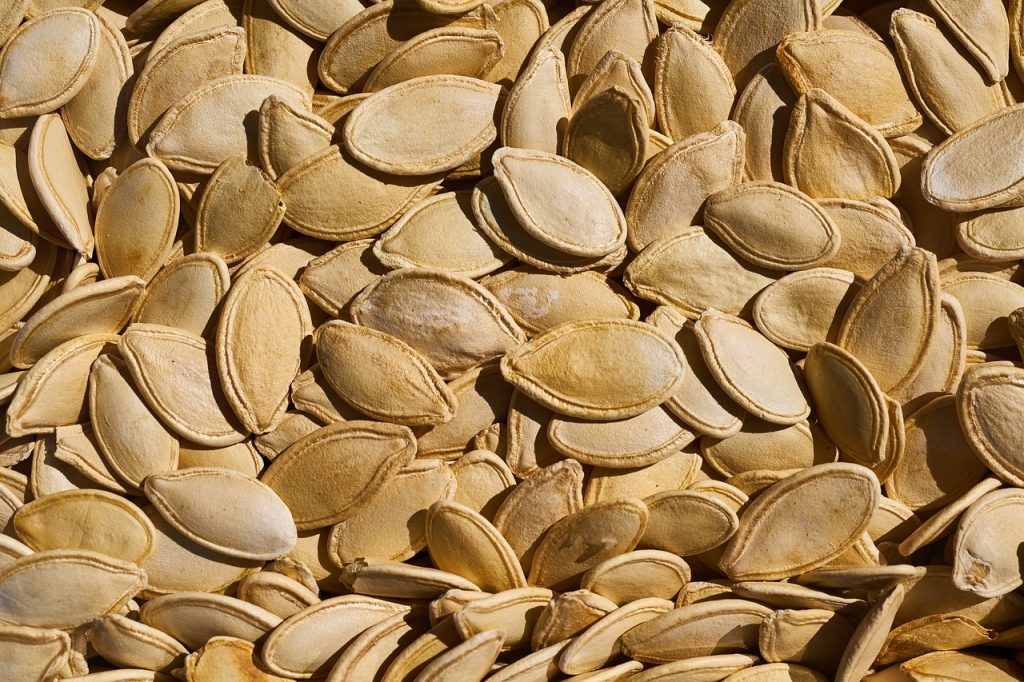Plant-derived phytosterols and beta-sitosterol in particular may relieve BPH symptoms.

Phytosterols are a type of plant compound. Phytosterols and one specific type called beta-sitosterol are found in many of the herbs used to support prostate health, and are also used as an isolated supplement. Phytosterols have been suggested to aid prostate healthy by:
- Relieving BPH. Phytosterols may alleviate the urinary symptoms of benign prostatic hyperplasia (BPH).
Overview
Phytosterols are plant-derived compounds that resemble the structure of cholesterol. They are found in particularly high levels in unrefined vegetable oil, whole grains, nuts, seeds, and legumes.
Although phytosterols are poorly absorbed by the body, they can block the absorption of cholesterol from food. Because of this, phytosterols are frequently added to functional foods and used in dietary supplements to lower elevated blood cholesterol levels.
Furthermore, phytosterols—and one particular plant sterol called beta-sitosterol—are used to relieve the urinary symptoms of benign prostatic hyperplasia (BPH). In fact, most of the herbs used in prostate health supplements—including saw palmetto, stinging nettle, pygeum, and pumpkin seed—naturally contain phytosterols. In addition to research backing the prostate benefits of these plants, studies of isolated beta-sitosterol also report improvement of BPH symptoms.

How Beta Sitosterol Might Help With Prostate Health
Researchers are not sure exactly how phytosterols and beta-sitosterol work. However, there are multiple proposed mechanisms: 1
- Changes in cholesterol metabolism, because cholesterol is needed to produce testosterone and other hormones that affect prostate function
- Anti-inflammatory effects, which may reduce the inflammation involved in benign prostatic hyperplasia
- Interacting with sex hormone–binding globulin (SHBG), a protein that may play a role in unwanted prostate growth
- Suppression of 5-a-reductase, an enzyme that converts testosterone into dihydrotestosterone (DHT), which is involved in development of BPH 2
Beta Sitosterol Uses & Benefits for Prostate Health
Phytosterol and beta-sitosterol supplements are mainly used to alleviate the urinary symptoms of BPH, which include:
- Frequent urination, especially at night
- Difficulty starting or maintaining urination
- Inability to complete empty the bladder
Although there are few clinical studies on beta-sitosterol, their findings indicate that it improves the symptoms of BPH and enhances urine flow. Furthermore, according to the latest systematic review that assessed data on 519 men with BPH, “In men with benign prostatic hyperplasia, β sitosterols lead to short term improvement in urinary symptoms.” 3 In addition to this, there is a large body of clinical evidence supporting the use of phytosterol-containing prostate herbs such as pygeum and stinging nettle.
Research
Human Research
Human studies of beta-sitosterol suggest that men who take it experience improvement of BPH symptoms, and have better urine flow rate. In addition, there are many more studies on phytosterol-containing herbs such as saw palmetto.
Beta-sitosterol (130 mg) appears to alleviate symptoms of BPH
This randomized, double-blind, placebo-controlled study, tested the efficacy of beta-sitosterol for the urinary symptoms of BPH. A total of 177 people were given placebo or free beta-sitosterol (130 mg) daily for 6 months. Compared to placebo, the sterol group experienced significant improvement as measured by the International Prostate Symptom Score (IPSS), urinary flow rate, and residual urinary volume.
- The researchers concluded that “…beta-sitosterol is an effective option in the treatment of BPH.” 4
Beta sitosterol (60 mg) appears to relieve BPH
In this randomized, double-blind, placebo-controlled study, 200 men with BPH were given beta-sitosterol (3×20 mg) or placebo daily for 6 months. Only the sterol group experienced significant improvement in measures of BPH symptoms, including the International Prostate Symptom Score (IPSS), Modified Boyarsky score, and urine flow.
- The researchers concluded that “Significant improvement in symptoms and urinary flow parameters show the effectiveness of beta-sitosterol in the treatment of benign prostatic hyperplasia.” 5
This follow-up study examined the prostate health of 117 men 18 months after they took placebo or beta-sitosterol for 6 months. The researchers found that the 38 men who continued beta-sitosterol supplementation maintained the same improvements they had after 6 months, while the 41 who didn’t experienced a slight worsening of symptoms. Meanwhile, men who took placebo for 6 months but started taking beta-sitosterol after the study improved their symptoms as much as the beta-sitosterol group.
- The researchers concluded that “The beneficial effects of beta-sitosterol treatment recorded in the 6-month double-blind trial were maintained for 18 months.” 6
Phytosterols (180 mg beta-sitosterol) appear to improve quality of life and symptoms in BPH patients
This Japanese study evaluated the efficacy of phytosterols in people with BPH. Twelve patients with BPH were given phytosterols (containing 180 mg beta-sitosterol) daily for 3 months. They showed improvement of the lower urinary tract symptoms (LUTS) of BPH and quality of life scores.
- The researchers concluded that “The beneficial effects of beta-sitosterol treatment recorded in the 6-month double-blind trial were maintained for 18 months.” 7
Dosage for Prostate Health
- Most successful human studies used phytosterol doses containing 60-180 mg of beta-sitosterol
- Most phytosterol supplements come in 400-1000 mg dosages, where beta-sitosterol is the main ingredient
- Phytosterols can also be added as an ingredient in prostate support formulas in a wide range of dosages (50-450 mg)
Available Forms
- Phytosterol complex. Despite the name, beta-sitosterol supplements are the same thing as phytosterol supplements. Both are sold as a complex that includes beta-sitosterol as the main ingredient, alongside other phytosterols, such as campesterol and sigmasterol.
- Prostate herb supplements. Phytosterols are naturally present in saw palmetto, pygeum, stinging nettle, pumpkin seed, and some other herbs used to support prostate health. However, their dosages are not indicated and can vary wildly.
- Standardized prostate extracts. If you want to use one of the above research-proven prostate herbs, then one better option is standardized herbal extracts, which are garanteed to contain a certain amount of phytosterols, such as 20%.
Supplements in Review Recommendation
- Phytosterol (beta-sitosterol) complex 400-1000mg, for prostate health.
Research supports the use of isolated phytosterols and phytosterol-containing herbs. Human studies of isolated phytosterols and beta-sitosterol, and herbs such as pygeum that naturally contain phytosterols, support their use for alleviating BPH.
It’s best to follow supplement recommended dosages. Although successful prostate research studies suggest phytosterol dosages containing 60-180 mg beta-sitosterol, most supplements tend to use larger doses.
Leave a Reply